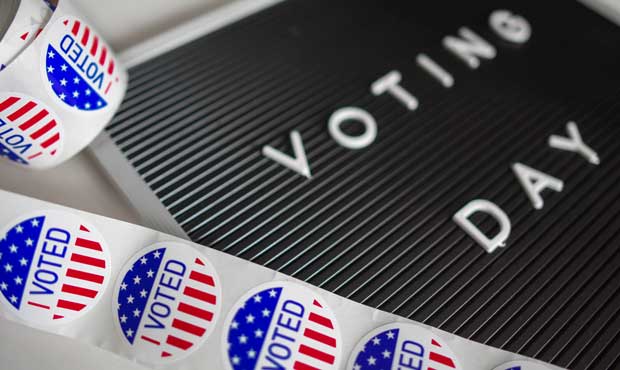Washington Legislature mulls moving presidential primary date in 2020
Jan 22, 2019, 6:39 AM

Presidential candidates may have to pay a bit more attention to our state’s voters come 2020. Right now, Washington’s presidential primary is held on the fourth Tuesday in May, generally well past the point when party nominees are mostly decided.
�鷡�����շ���:��State midterm voter turnout falls just short of expectations
In an ongoing push from Secretary of State Kim Wyman, there is an effort in Olympia to bump that to the second Tuesday in March, moving it ahead of 19 other states’ primaries.
It’s an effort that’s come up in the past couple of sessions, but has traditionally failed to get by Democrats. Democrats don’t use the primary to allocate delegates, but instead use the caucus system, which critics argue is archaic and elitist.
The Washington State Republican Party generally uses the primary results, or a mix of the primary and caucus results to allocate delegates.
This time around there are a couple of different bills in the Senate, one from a Republican, and the other from a Democrat.
Both would change the date to early March, and both would allow the secretary of state wiggle room to change that date to align with primaries in nearby states, and create a sort of West Coast Super Tuesday.
Democratic Senator Sam Hunt is behind the one version, .
On top of moving the date, Hunt says he hopes the shift brings another change.
“To have a primary that the parties will use for selection allocation of delegates to the national and state convention, so that we don’t have the mish-mash that we have had at political precinct caucuses, so that we have a meaningful primary,” Hunt said at a Senate Committee hearing Friday.
Republican Senator Hanz Zeiger is behind the other bill, .
“It will make our state more attractive to candidates to show up here and campaign — that’s very important as we set the standard for the rest of the country, and so our presidential candidates ought to be paying attention to that,” Zeiger said.
But Zeiger’s bill goes further, removing the option for write-in candidates, and the more controversial move to allow unaffiliated primary ballots.
“There are a lot of people who are unaffiliated [and] don’t consider themselves Republicans, [or] don’t consider themselves Democrats who want to vote in a presidential primary, and we should give them that option. And then in turn we should give the option to the political parties to consider those votes,” Zeiger said.
During a Senate committee hearing Friday, Jay Jennings with the Secretary of State’s Office explained why Wyman wants it.
“In a tax-payer funded election, providing access to voters preferring not to publicly declare their affiliation with either party is an issue on which Secretary Wyman is deeply passionate. Secretary Wyman speaks of binders full of citizen complaints regarding their inability to participate unless they publicly declare a party preference. Those complaints are also reflected in turnout,” Jennings explained.
Under the unaffiliated voter option, Jennings says voters would get a ballot with three lists of candidates: One list with Republican candidates determined by that party, another with Democratic candidates determined by their party.
Voters choosing either of those lists would have to declare accordingly. A third list would include an alphabetical list of all candidates, regardless of party.
“A voter choosing to vote from this third list would not be required to declare party affiliation with either of the parties,” Jennings said.
�鷡�����շ���:��Inslee wants to ‘play poker with Donald Trump’
“Votes from the combined list would be tabulated separately, and each party would have the option of including those results in its delegate selection. Voters would be aware that if they chose from the combined list, their ballot may or may not impact delegate selection,” Jennings added.
But David McDonald — who represents the Democratic National Committee for Washington state — says that violates national party rules.
“The national party rules on the Democratic side explicitly say the unaffiliated portion of a presidential primary ballot not only should not be used in allocating delegates, but is considered detrimental,” McDonald said.
And he says that because it is considered detrimental, candidates and state parties are required to take whatever steps necessary not to participate in that primary.
McDonald says they are also other issues with the Zeiger bill the secretary of state wants to address. Such as how it uses a system that allows for unaffiliated voters and prohibits a recount. McDonald says unlike Senator’s Hunt’s bill, the one the secretary of state wants does not allow voters to choose uncommitted delegates.
Overall, there wasn’t much in the way of opposition to moving the primary, and there seemed to be some willingness to bend on the other issues. Both bills have bipartisan sponsors, and there also companion bills in the House, though neither of those have hearings yet.














